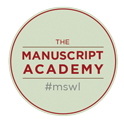Our classes are designed to give you a well-rounded publishing education — the best of everything you’d get from an in-person event, all from home.
Members get access to ALL our of the conference’s premium recorded content (classes, panels, etc.) for $49/month. Please scroll down for a list of offerings.
Once you’ve absorbed the information, schedule a live meeting with a faculty member for one-on-one feedback for your query or first page.
Consultations are add-on and optional. You do not need to be a member to book a meeting or written critique.
The following classes are included with your membership:
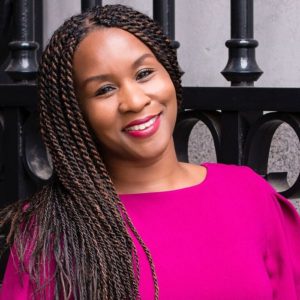
Coming Soon: Platform & Publicity In Your Pajamas–Dawn Michelle Hardy, Dream Relations
You may have heard about platform—you know, that thing that sets your work (whether fiction or nonfiction) apart from all the other projects in the slush. Maybe you’re intimidated, maybe you think it’s only for celebrities—but in this class, you’ll learn how to give your work that edge without a huge amount of time, money, or even leaving your couch.
Dawn Michelle Hardy is a literary agent and publicist on a mission to help authors build the business foundations of their creative careers. Join us for her (recorded, edited class) and live Q&A to learn how to make YOUR work stand out.
Coming soon! Want an email when it goes up? Click here.
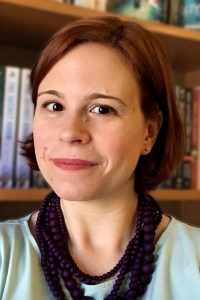
Featured Class: How To Pitch Your Book Like A Publicist–Rachel Ekstrom Courage, Folio Literary Management
“No matter where you’re at in the process of publication, you need to watch Rachel Ekstrom Courage’s fun and info-packed course: How to Promote Your Book Like a Publicist. Her tips will help you reframe not just the promotion of your book, but the promotion of yourself as an author people want to know.”
–Theresa Rice, www.sassinboots.com
It’s easy to assume that all agents are tired, burnt out, and cynical about your queries–but the truth is, if you approach them correctly, they’ll be (almost) as excited about your book as you are.
Using tricks from her years as a book publicist, literary agent Rachel Ekstrom Courage (Folio Literary Management) talks you through how to share the right information to get requests, not rejections.
Plus, she goes through an early query for the now-published The Coincidence of Coconut Cake to show you, step-by-step, how to implement her advice–and how the right text can carry you not just toward a relationship with an agent, but a successful career.
Available as part of membership or a la carte.
 Featured Class: Great First Lines–John Cusick, Vice President of Folio Literary Management
Featured Class: Great First Lines–John Cusick, Vice President of Folio Literary Management
Using examples from young adult fiction, literature, pop culture, film, and television, this presentation explores the craft of startling, intriguing, and unforgettable openings. Discover how to capture and hold a reader’s— or agent’s or editor’s— attention, interest, and excitement from word one! This is a must for anyone looking to write and sell a breakout novel.
In this presentation, instructor John Cusick uses his unique expertise as both an agent and author, to explore the power of opening lines to establish a relationship with the reader, create a strong first impression, and even encapsulate the whole of a story and theme in a single sentence or paragraph. In this difficult and competitive market, an arresting opening line can mean the difference between a book deal and a slush pile. Learn to stand out with John’s artistic and industry know-how.
Available as part of membership or a la carte.
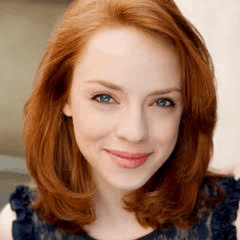 Un-Branding Yourself: Revealing The True You to the Book Community (Laura Barbiea, Alloy Entertainment)
Un-Branding Yourself: Revealing The True You to the Book Community (Laura Barbiea, Alloy Entertainment)
For so many creative people, “branding,” “marketing,” and “promotion” are bad words. Many view these things as chores or barriers to expressing your true self. This class will change how you perceive the online world, and expand your understanding of how to effectively represent yourself and your work! Taught by Laura Barbiea, social media manager at Alloy Entertainment (a publisher), this class will discuss strategies for reaching the fans you already have and ways you can connect with other like-minded artists in the writing community.
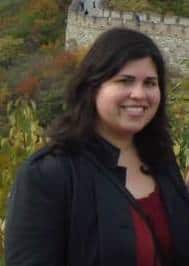 Writing A Manuscript That Gets and Keeps Everyone’s Attention — Linda Camacho (Prospect Agency)
Writing A Manuscript That Gets and Keeps Everyone’s Attention — Linda Camacho (Prospect Agency)
Manuscripts are vetted at so many levels. They pass from the eyes of agents to editors to marketing to sales, and while there are some variables outside of the writer’s control, craft is not one of them. In the end, publishing folks seek the same thing: A good story. Every good story has certain key elements that I looked for as as a marketer at Random House and even now as an agent. If the manuscript falters on any of these counts, it’s a pass. In this workshop, I’ll talk about several key story fundamentals that not only grab an agent or editor’s attention, but that of the acquisitions board as well.
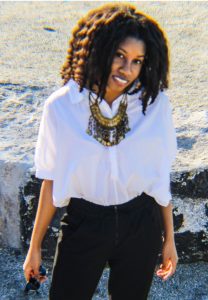 Marketing 101 — Jalissa Corrie, Lee & Low Books
Marketing 101 — Jalissa Corrie, Lee & Low Books
Even if you don’t have a book deal, an agent, or a completed manuscript, it’s never too early to prepare yourself for the moment you become an author. From networking at events to establishing web presence, this talk will highlight what you can do now to help build your platform, audience, and readership.
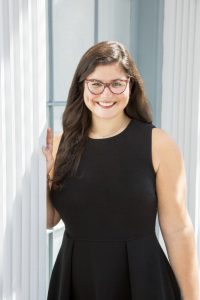 A Beginner’s Guide to Publishing Law — Melissa Edwards (Stonesong Literary)
A Beginner’s Guide to Publishing Law — Melissa Edwards (Stonesong Literary)
Contracts, copyright, and intellectual property… oh my! Attorney and literary agent Melissa Edwards wants to help shine some light on the legalities involved in publishing a book. She will give a rundown on basic copyright protection, before and after registration, and introduce you to the most important terms in a publishing contract. While no class can replace hiring an attorney to protect your rights, this class will act as a excellent publaw primer.
 Writing Picture Books: How? Why? When? — Julie Falatko, Author
Writing Picture Books: How? Why? When? — Julie Falatko, Author
Do you have an idea for a children’s book, but get discouraged thinking when you sit down to write? Maybe you can’t seem to make your story sing, or it seems impossible to break into the seemingly impenetrable market. Fear not. Published picture book author Julie Falatko (Snappsy the Alligator (Did Not Ask to Be in This Book) gives you tips on writing and publishing for the youngest of young readers—dishing out insider information on the process. Grab a cup of coffee and get cozy for a fun and honest discussion about writing and selling picture books. You’ll learn about word count, character, how the library is your friend, and adding a surprise element to a story so your work will stand out. You can visit Julie’s website or find her online at Twitter, Facebook, and Instagram.
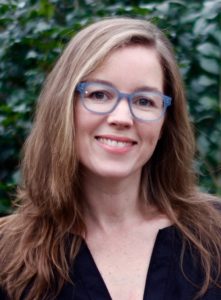 Straight from the Heart: Knowing Your Emotional Core in the Craft and Business of Writing For Children — Stephanie Fretwell-Hill, Red Fox Literary
Straight from the Heart: Knowing Your Emotional Core in the Craft and Business of Writing For Children — Stephanie Fretwell-Hill, Red Fox Literary
You may not yet realize it, but the worlds of writing and publishing are built on a foundation of relationships. There are the relationships between your characters, the relationship readers have to your work, and the relationships inside the industry. In this talk, we’ll explore how that can benefit you as a writer–and how being emotionally open in your work is often the key to getting that all-important YES.
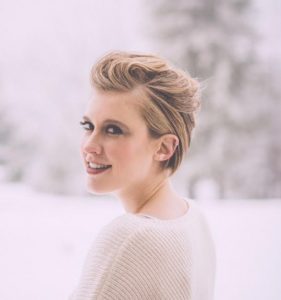 Finding the Funny in Your Manuscript — Jilly Gagnon, author of #Famous (HarperCollins, 2017)
Finding the Funny in Your Manuscript — Jilly Gagnon, author of #Famous (HarperCollins, 2017)
Everyone loves a good laugh, but many of us think we’re not capable of injecting humor into our stories, that we’re “just not funny.” In this talk, young adult author and comedy writer Jilly Gagnon will explain some of the purposes of comedy in literature, the ways any writer can insert it into a manuscript, why you might want to (even if your book is a tearjerker), common comedy pitfalls, and the tools you’ll need to start bringing laughter to your readers.
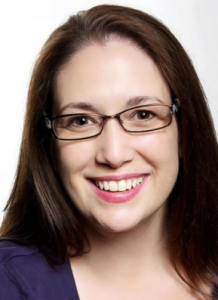 Writing Villains Readers Love to Hate — Stacey Graham, Red Sofa Literary
Writing Villains Readers Love to Hate — Stacey Graham, Red Sofa Literary
Who’s your favorite villain? Caroline Bingley? Mrs. Danvers? Evil queens? The bad guy (or girl) is necessary to promote conflict and move the story forward so why are they often one of the least-developed characters? We’ll explore wickedness in literature and if these characters are just misunderstood or really nasty. Learn why every hero needs a dark spot and how writers can move past stereotypical bullies in their manuscripts and flesh out what makes them diabolical in this fun and fast-paced workshop!
 How to Find the Narrative in Your Nonfiction –Erik Hane, Red Sofa Literary
How to Find the Narrative in Your Nonfiction –Erik Hane, Red Sofa Literary
The serious nonfiction books we love most are of course full of facts, research, and insight. But the difference between a good topic and a great book lies in not just the information, but the writing. It’s one thing to present a bunch of worthwhile thoughts to a reader, and quite another to bring these thoughts and this research to life in way that resonates and engages. The key to this is narrative, the backbone of the story you’re trying to tell, and fostering it throughout your nonfiction writing is a crucial step in keeping a reader’s attention. In this course, we’ll discuss issues related to creating and sustaining narrative in nonfiction. How do you find where your story is, or where it starts? How do you decide when and how to disperse your research and information? When do tangents and asides distract from your story, and when do they provide critical layering to your argument? The course will aim to prove that narrative is not only the main thrust of great nonfiction writing, but is also the foundation from which all other elements in a book are built.
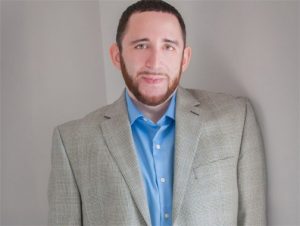 How to Edit a Bestselling Romance Novel — Lane Heymont, The Tobias Agency
How to Edit a Bestselling Romance Novel — Lane Heymont, The Tobias Agency
In writing, they say “kill your darlings.” Well, learn how to edit your romance novel to death. You will learn how to turn you first draft into a finished product to submit to agents and editors. See what all the bestsellers have in common, and finally nail down your meet-cute!
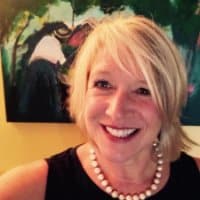 The Art of the Break For Writers and Artists — Elizabeth Ross Holmstrom
The Art of the Break For Writers and Artists — Elizabeth Ross Holmstrom
For many people working in an office or business setting, writing or an art project would be considered a healthy and mindful break from the work day. So where does a writer or artist turn to create healthy breaks in their day? Most writers and artists that I work with are busier or as busy as anyone in an office setting. In fact, many are working double and triple time producing work, handling publishing, marketing, sales, and managing business finance; this on top of balancing their lives.
This course is focused on helping you find precious moments for healthy breaks in the day. We all need time to unplug in a world filled with opportunities to connect. While it may be counter-intuitive, mindful breaks not only boost your productivity, they reduce stress and improve your health. https://www.breaktogether.net.
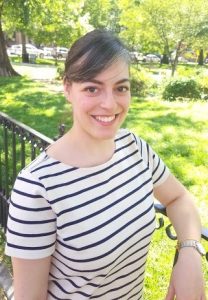 How to Write for a Middle Grade Audience –Alyssa Jennette, Stonesong Literary
How to Write for a Middle Grade Audience –Alyssa Jennette, Stonesong Literary
Writing for children on the cusp of adolescence is a mysterious formula, particularly when interacting with kids isn’t part of your usual routine. This online conference will define middle grade (as opposed to YA and other children’s books), let you in on the three most common misconceptions about writing for a middle grade audience, teach you what keeps a young reader’s attention, and much more.
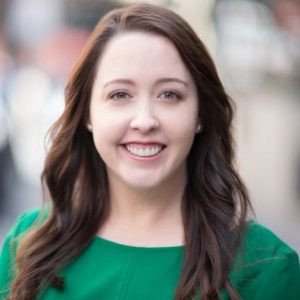 High Concept: What It Is, How It Helps You Sell–Jennifer Johnson-Blalock, Liza Dawson Associates
High Concept: What It Is, How It Helps You Sell–Jennifer Johnson-Blalock, Liza Dawson Associates
You may have heard rumors that editors, now, are looking for fewer works–but those that are “high concept.” What does it mean to be high concept–and how can you make your work fit this description? Better still, how can having a high concept work help you in every stage, from pitching agents, to pitching editors, to pitching acquisitions boards, to better placement in the bookstores and better book sales?
Like high concept works, Jennifer’s class is short, packed with information, and to the point. HD video, 12:51.
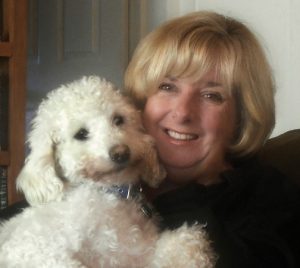 From Concept to Picture Book. An illustrator’s Perspective–Hazel Mitchell, Author/Illustrator
From Concept to Picture Book. An illustrator’s Perspective–Hazel Mitchell, Author/Illustrator
Hazel Mitchell talks about how she took her real dog and featured him in a fictionalized setting, from initial sketches, dummies to final artwork. An overview of style choices to character depiction, layout and composition, pacing, page turns, working with an art director and tips for making the process pain free!
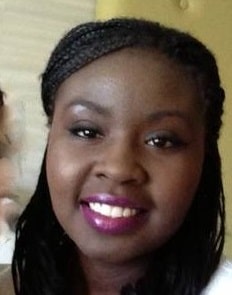 OwnVoices–How to Write What You Know for a Commercial Audience – Quressa Robinson
OwnVoices–How to Write What You Know for a Commercial Audience – Quressa Robinson
In OwnVoices–How to Write What You Know for a Commercial Audience, we will briefly discuss the changing landscape of creative media overall–Insecure, Luke Cage, Jessica Jones, Pitch, Queen Sugar, the upcoming adaptation of In the Country We Love, and Jane the Virgin on the TV side of things. But will specifically focus on trade publishing, which can often feel slow to adapt to developing demographics. A closer look at some select titles from ownvoices authors–The Sympathizer, Everything I Never Told You, The Mothers, Behold the Dreamers, Everything, Everything, The Hate You Give, American Street, Homegoing, Awkward Black Girl, Don’t Touch My Hair, In the Country We Love–will help us further evaluate what an ownvoices author needs to successfully reach a wide commercial audience and breakout of niche categories based on race or sexual orientation. Some questions to consider:
-
- What do these stories have in common?
- What sets them apart?
- How has each author developed their platform?
- How did the publisher/agent/editor position the title for librarians, booksellers, and readers?
- Were all the titles successful? In what ways?
- How were they able to find their audience?
- What can you do to maintain the authenticity of your story and voice, while striving to reach a wide audience?
- How can you position yourself to agents/editors to overcome unconscious biases?
 Trendsetter not Trendy—How to Find Your Niche and Build a Lasting Career in Romance or Commercial Women’s Fiction — Quressa Robinson
Trendsetter not Trendy—How to Find Your Niche and Build a Lasting Career in Romance or Commercial Women’s Fiction — Quressa Robinson
Patience is definitely a virtue where publishing is concerned. In this class we will discuss the emerging trends in women’s fiction and romance, as well as the tried-and-true staples of the genre. We will also discuss what to do if you find yourself with a novel that is on the downward end of a trend, how to fight the urge to jump into a trend because it seems a faster way to publication, and how to make what you know/are passionate about into a career-building niche and platform. Some genres to consider: fantasy romance, psychological suspense, family/domestic stories, urban fantasy, and paranormal romance. Some authors to consider: Amanda Bouchet, Jeannie Lin, Sonali Dev, Lianne Moriarty, Alice Clayton, Brenda Jenkins, and Ruth Ware.
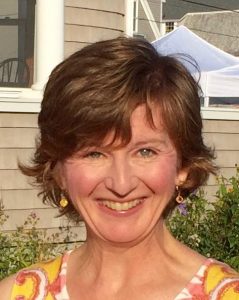 School Visits: How to Meet Young Readers, Build an Audience, and Sell Books — Cameron Kelly Rosenblum, author
School Visits: How to Meet Young Readers, Build an Audience, and Sell Books — Cameron Kelly Rosenblum, author
You’ve done it! You’re a published author! Congratulations! As a book creator, you want nothing more than to get your stories into the hands of kids, right? Guess what! Your school librarian wants the same thing. School librarians can be powerful, passionate advocates for your work and are networked nationally and beyond through Twitter, blogs and conferences. By creating a rich school visit program, you can reach your audience in a unique way, connecting with kids, building enthusiasm for literacy schools— in short, helping the school librarian and teachers to do their job. It’s a win-win if you build a reputation for having a great program. Find out what makes a stand-out school visit from the educator’s point of view and how you can really connect with your most important peeps: the kids.
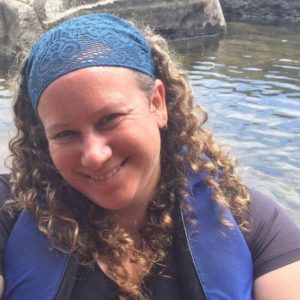 Worldwide Appeal: What You Need to Know About Foreign Rights–Rena Rossner, The Deborah Harris Agency, Jerusalem
Worldwide Appeal: What You Need to Know About Foreign Rights–Rena Rossner, The Deborah Harris Agency, Jerusalem
You’ve often heard about foreign rights–that they’re the first step on your way to being an international bestseller. But what’s the best way to sell them? Is it always best for your agent to retain them? Do potential agents need an in-house team? And just what happens at Frankfurt, anyway? Rena discusses everything from translation to travel to taxes–and why (like many things in publishing) it takes a long time. Shot in HD in Brooklyn, 46:03.
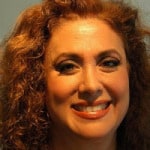 From Pitch to Page — Katharine Sands, The Sarah Jane Freymann Literary Agency
From Pitch to Page — Katharine Sands, The Sarah Jane Freymann Literary Agency
Literary agents are always on a treasure hunt. But few writers know what it takes to make agents yell at first glance: “Eureka, I’ve struck gold!” And a first glance is all that most writers will get before the agent moves on without ever reading further. This presentation cuts through the mystery of getting an agent to want YOU, to read YOU, and to say YES to YOU. In this class, literary agent Katharine Sands shows you the best ways to showcase your writing as a bold, new entry into its category—and yourself as a potential author with an intriguing book poised to spring forth. We look at hooks, selling points, and engines; and how to avoid Querial Killers: the easy-to-fix mistakes writers make when querying agents and on All-Important Page One.
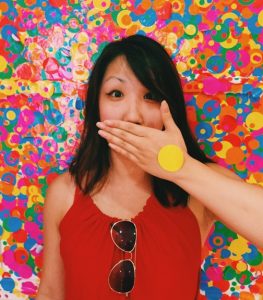 Nonfiction Basics —Amanda Shih, Scholastic, formerly Perigee/Penguin Random House
Nonfiction Basics —Amanda Shih, Scholastic, formerly Perigee/Penguin Random House
Do you have an amazing personal story, expert knowledge, or creative talents you want to share with the world? With so much information out there for fiction authors, it can be tough to get detailed advice on what it takes to make a nonfiction project stand out. This class will walk you through the basics: What qualifies as nonfiction? (It’s not all memoirs and big-issue books!) How does a nonfiction proposal differ from a fiction submission? And platform, platform, platform: Why does it matter, and how can you build yours? We’ll demystify this wide-ranging genre, and give you the tools you need to create the kind of nonfiction project agents and editors will be excited to pursue.
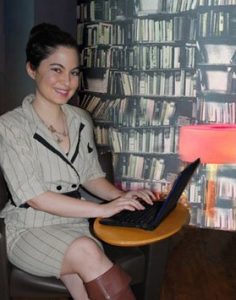 Internet Stalking Without Being Creepy: Research, Networking, and Becoming a Priority – Jessica Sinsheimer, The Sarah Jane Freymann Literary Agency
Internet Stalking Without Being Creepy: Research, Networking, and Becoming a Priority – Jessica Sinsheimer, The Sarah Jane Freymann Literary Agency
Everyone knows that social media can build your platform, expand your network, and make you look more appealing to a potential agent. But for the introverts among us, blasting content can feel unnatural, intimidating, and borderline creepy. This course will show you how to think of this now-essential task as a way to build authentic connections and find real friendships—while also locating the people most likely to move your career forward. In this course, you’ll learn how to build your list of potential agents, how to do targeted research that helps you personalize your pitch, and how to become a known factor—to present yourself as someone great to work with—so your name leaps out, and the agent already likes you, when you finally do submit your work.
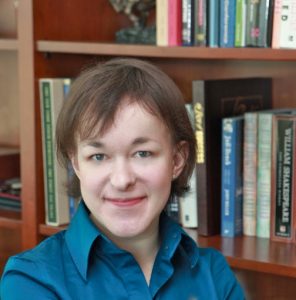 Worldbuilding 101 — Roseanne Wells, Jennifer Di Chiara Literary Agency
Worldbuilding 101 — Roseanne Wells, Jennifer Di Chiara Literary Agency
Ever received feedback on your work that said “I didn’t connect with the world”? Perhaps you’re not sure if your fantasy story is believable? Worldbuilding–for fantasy, magical realism, and even contemporary–can be hard to define, but it’s essential to support any narrative. Taught by a literary agent who seeks immersive and detailed worlds, this session will discuss what worldbuilding is, how character and worldbuilding help each other, and a breakdown of the elements of worldbuilding.
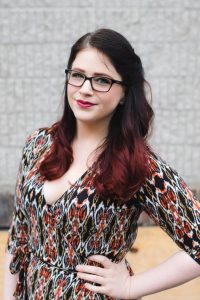
Character, POV, and The All-Important Voice — Laura Zats, Red Sofa Literary
In fiction, a solid, engaging voice is the hardest thing to nail down. The reason why a book’s voice might fail is very often linked to one issue: a lack of connectivity between a character and the space they occupy (both their body and the world around them). The good news is that there’s a fairly simple solution to this problem: deepening POV. This class will focus on some simple self-editing techniques you can use to deepen your book’s POV without rewriting entire chapters.
